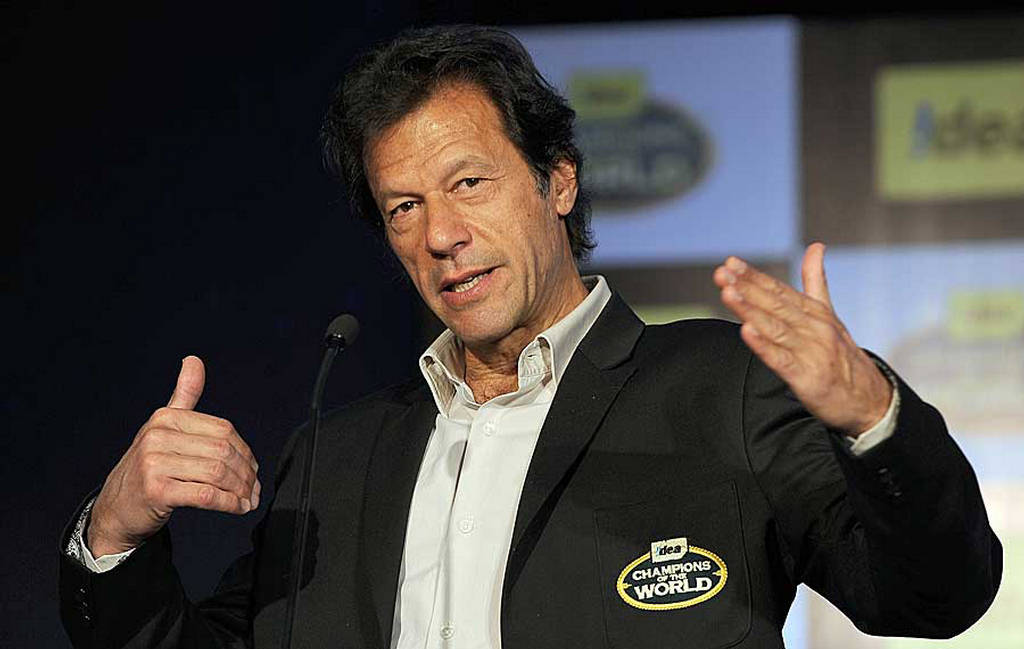Pakistan Govt Blinks in Eye to Eye Face Off with Imran Khan
PTI leader Imran Khan

NEW DELHI: As the deadline set by Pakistan Tehreeq-e-Insaaf leader Imran Khan for storming the “Red Zone” of Islamabad draws to a close, a panicky Pakistan government has set up two committees to discuss all “constitutional demands” put up by P{T and the Pakistan Awami Tehreek that is also demanding the resignation of Prime Minister Nawaz Sharif.
The committees comprise all members of the opposition, and were formed hours after Khan launched his civil disobedience movement to oust Sharif.
The federal government is willing to listen to each and every constitutional demand of PTI and PAT as a goodwill gesture, we have decided to constitute two separate committees to negotiate with them," Interior Minister Chaudhry Nisar told a news conference here last night.
"The two teams will consist of members from all major parties and will hold talks with the protesting leaders tomorrow," he added.
The minister, however, made it clear that no one will be allowed to violate the security of the ‘Red Zone’ where the offices of the government, and the residences of top leaders as well as the embassies are located. He claimed that the government had been supportive of the protesters and that till now over a billion rupees had been spent on their security.
The face off is getting increasingly tense, with the crowds supporting Khan increasing. "I have called for the civil disobedience movement for you, not for myself. We will not pay taxes, electricity or gas bills," Khan told his supporters while giving a speech which he described as the most important of his political career.
"I thought that if this rally heads towards the Prime Minister House then they will clash with the police,” he said adding that he did not want violence and people to be killed or injured.
"There is only one way now, we will kick off a civil disobedience campaign," Khan said to raucous applause from thousands of his supporters in support of his efforts to oust Sharif.
The ruling party of Pakistan, PML-N had won 190 of the 342 seats in the elections while PTI got 34 seats that placed him as the third largest bloc in the legislature. Khan has always maintained that his party would have done far better, and was the victim of mass rigging by Sharif and his supporters.
Interestingly while a section of the media wrote of a massive support for Khan on the streets, others were equally insistent that his was a flop show. Independent reports suggest that a thin crowd greeted him when he arrived at Islamabad but this has grown into an enthusiastic audience of thousands over the days. Encouraged by the response, mostly from young Pakistanis, Khan has warned the government that he cannot hold back his supporters from entering the “Red Zone” and needs a quick response.
Lashing out at Sharif for amassing wealth and for non-governance Khan told the rally,
"I assure you that when I finish my speech, and if you do what I ask you to, then no one can stop a 'naya' Pakistan from being made."
Khan’s agitation on the roads is not usual for Pakistan. The fact that he has managed to enthuse the crowds is being seen by dispassionate observers in Lahore and Islamabad as one, a sign of his popularity that has not faded since the elections clearly; and two, anger with the current government that he has been able to capitalise on. The birds eye view from India does suggest an influence of the pre-partition civil disobedience movement under Gandhi, as well as the more recent agitation launched in Delhi by the Aam Aadmi Party where it asked the residents not to pay their electricity and water bills.



